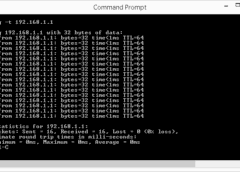Giving MES Engineers a private place to collaborate. Stay up to date with MES related news, job postings, support forums, social networking, and so much more!
MES SUPPORT FORUMS

MES ENGINEERS
What is a MES Engineer?
A Manufacturing Execution System (MES) Engineer, also known as a Manufacturing Execution Engineer, is a skilled professional responsible for designing, implementing, and optimizing MES solutions within manufacturing environments. They bridge the gap between technology and manufacturing processes to improve operational efficiency and productivity.
The primary responsibilities of a MES Engineer include:
- System Design and Implementation: Employing their technical expertise, MES Engineers design and implement MES systems tailored to the specific needs of manufacturing operations. They collaborate with cross-functional teams to understand requirements, configure software, and integrate the system with existing production processes.
- Data Analysis and Optimization: MES Engineers analyze operational data collected from various sources such as machines, equipment, and sensors. They identify inefficiencies, bottlenecks, and areas for improvement, enabling data-driven decision-making. Through continuous optimization, they enhance production processes, reduce downtime, and maximize productivity.
- Integration with Business Systems: MES Engineers ensure seamless integration between the MES system and other business systems, such as Enterprise Resource Planning (ERP) software. This allows for efficient data exchange, coordination, and streamlined communication across different departments within an organization.
- Maintenance and Support: They provide ongoing support, troubleshooting, and maintenance for MES systems. This includes monitoring system performance, addressing technical issues, and implementing upgrades or modifications as needed.
The salary of a MES Engineer can vary depending on factors such as experience, location, and company size. According to industry sources, the average annual salary for a MES Engineer ranges from $65,000 to $120,000, with higher levels of experience and expertise often commanding higher salaries.
To pursue a career as a MES Engineer, a bachelor’s degree in engineering, information systems, or a related field is typically required. Specialization or coursework in manufacturing systems, industrial automation, or process engineering can be beneficial. Additionally, having strong problem-solving skills, knowledge of programming languages, and familiarity with manufacturing processes and technologies are valuable assets for a MES Engineer.
Continued professional development, such as certifications in specific MES systems or technologies, can also further enhance employability and career growth opportunities within this field.
What is a Manufacturing Execution System (MES)?
A Manufacturing Execution System (MES) is a software-based solution that integrates and manages various aspects of manufacturing operations. It acts as a bridge between the shop floor and the management level, providing real-time visibility and control over production processes. MES software helps to streamline and optimize manufacturing operations by:
- Collecting and analyzing data: MES systems gather data from machines, sensors, and other sources within the production environment. This data includes information about machine performance, quality metrics, inventory levels, and more. By analyzing this data, MES systems provide insights into production efficiency, identify bottlenecks, and enable data-driven decision-making.
- Tracking and tracing: MES systems enable the tracking and tracing of materials, components, and products throughout the manufacturing process. This ensures product quality, helps to prevent errors or defects, and supports compliance with regulatory requirements.
- Scheduling and planning: MES systems assist in production planning and scheduling, ensuring that resources are allocated efficiently. They help optimize production sequences, manage work orders, and monitor the progress of production activities in real-time.
- Quality management: MES systems facilitate quality control by providing tools for monitoring and controlling the quality of raw materials, work-in-progress, and finished products. They can enforce quality standards, perform inspections, and trigger corrective actions when deviations occur.
- Shop floor control: MES systems enable real-time control and coordination of activities on the shop floor. They provide operators with work instructions, guide them through production processes, and ensure that operations are executed according to predefined standards.
Overall, a Manufacturing Execution System (MES) plays a crucial role in increasing operational efficiency, improving quality control, reducing downtime, and enhancing overall productivity within manufacturing environments.






